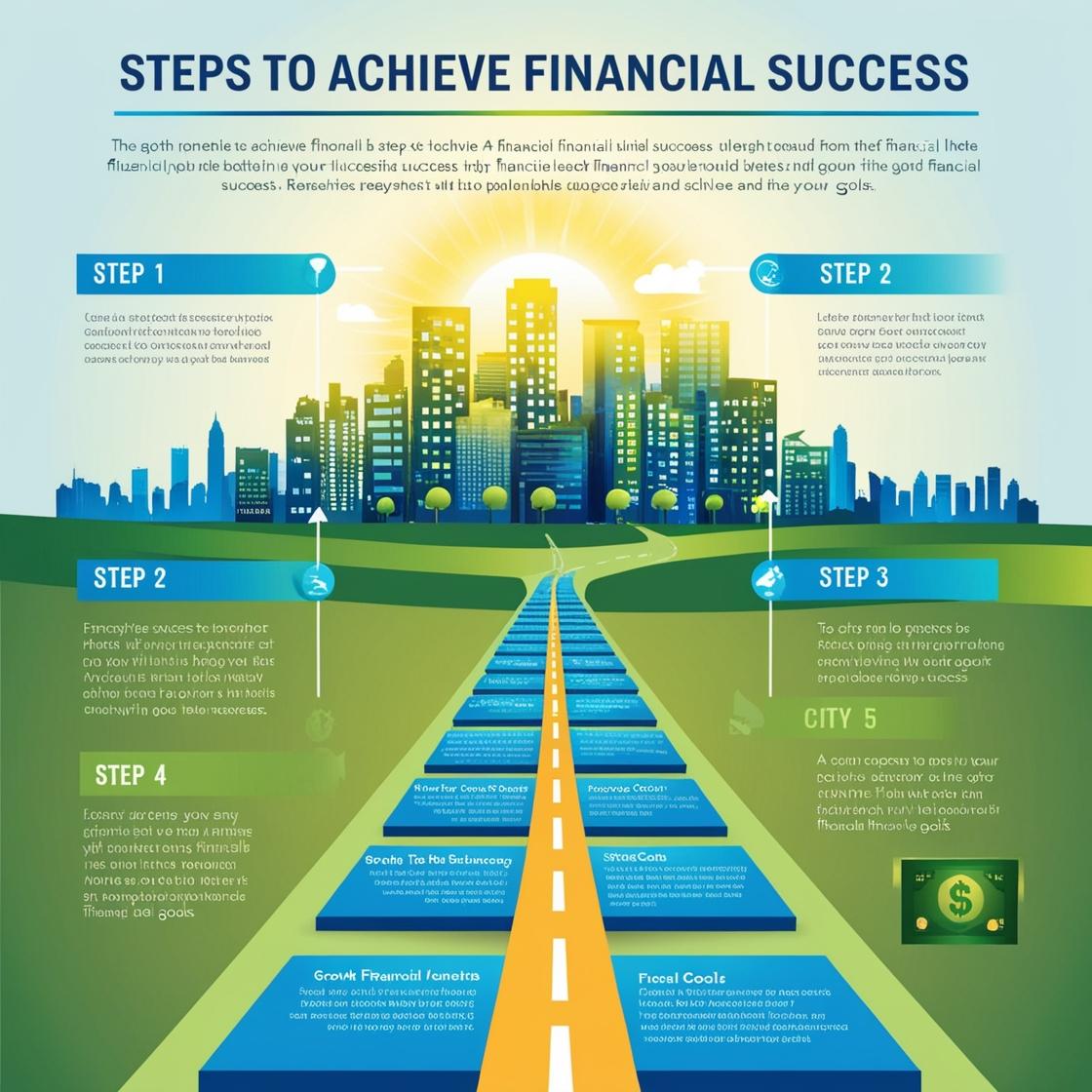
Personal Finance for Beginners: A Comprehensive Guide to Getting Started
Managing your personal finances can seem daunting, especially if you’re just starting out. However, understanding the basics of personal finance is essential for building a secure financial future. This guide will walk you through the key concepts and steps you need to take to get your finances on track, whether you’re a student, a young professional, or just someone looking to improve your money management skills.
What is Personal Finance?
Personal finance refers to the management of your financial activities and decisions. This includes budgeting, saving, investing, and planning for future goals. The goal of personal finance is to help you make informed decisions about how to manage your money effectively, so you can achieve financial stability and reach your financial goals.
1. Understanding Your Financial Situation
Before you can improve your finances, you need to understand where you currently stand. Start by assessing your income, expenses, debts, and savings.
Steps to Assess Your Financial Situation:
- Track Your Income: List all sources of income, including your salary, side hustles, and any other earnings.
- Monitor Your Expenses: Record your monthly expenses, including rent, utilities, groceries, and discretionary spending.
- Calculate Your Net Worth: Subtract your liabilities (debts) from your assets (savings, investments) to find out your net worth.
2. Create a Budget
A budget is a plan for how you will spend and save your money. Creating a budget helps you manage your finances, avoid overspending, and ensure that you’re saving for future goals.
Steps to Create a Budget:
- List All Income Sources: Include your salary, side hustle income, and any other sources of money.
- List All Expenses: Categorize your expenses into fixed (rent, mortgage) and variable (entertainment, dining out).
- Set Budget Goals: Allocate a specific amount for each expense category and set savings goals.
- Track Your Spending: Use budgeting apps or spreadsheets to keep track of your spending and make adjustments as needed.
Budgeting Tools:
- Apps: Mint, YNAB (You Need a Budget), PocketGuard
- Spreadsheets: Google Sheets, Excel templates
3. Build an Emergency Fund
An emergency fund is a savings reserve set aside for unexpected expenses, such as medical emergencies or car repairs. It’s a crucial part of personal finance because it helps you avoid debt when unforeseen costs arise.
How to Build an Emergency Fund:
- Set a Savings Goal: Aim for at least one month’s worth of expenses, and eventually work up to three to six months of expenses.
- Open a Separate Savings Account: Use a high-yield savings account to keep your emergency fund separate from your regular checking account.
Savings Tips:
- Automate Your Savings: Set up automatic transfers from your checking account to your savings account.
- Save Windfalls: Put any extra money, like tax refunds or bonuses, into your emergency fund.
4. Manage and Eliminate Debt
Debt management is a critical aspect of personal finance. High-interest debt, such as credit card debt, can quickly become unmanageable if not addressed.
Debt Management Strategies:
- List Your Debts: Include all debts, their balances, interest rates, and minimum payments.
- Choose a Repayment Method: Common methods include the debt snowball (paying off the smallest debt first) and the debt avalanche (focusing on the highest interest rate first).
- Negotiate Lower Rates: Contact creditors to ask for lower interest rates or better terms.
Debt Reduction Tools:
- Debt Consolidation Loans: Combine multiple debts into one loan with a lower interest rate.
- Credit Counseling Services: Seek professional help for managing and repaying debt.
5. Start Saving for Retirement
It’s never too early to start saving for retirement. The earlier you begin, the more you can take advantage of compound interest and grow your savings over time.
Retirement Savings Options:
- 401(k): An employer-sponsored retirement plan that often includes matching contributions.
- IRA (Individual Retirement Account): A personal account for retirement savings with tax advantages.
- Roth IRA: A retirement account where you pay taxes on your contributions but not on your withdrawals.
Retirement Savings Tips:
- Contribute Regularly: Set up automatic contributions to your retirement accounts.
- Increase Contributions Over Time: Gradually increase your savings rate as your income grows.
6. Learn About Investing
Investing is a way to grow your money over time by putting it into assets like stocks, bonds, or real estate. It’s an essential part of personal finance for building wealth and achieving long-term financial goals.
Basic Investment Options:
- Stocks: Shares of ownership in a company.
- Bonds: Loans to corporations or governments that pay interest over time.
- Mutual Funds: Investment funds that pool money from many investors to buy a diversified portfolio of stocks and bonds.
- ETFs (Exchange-Traded Funds): Investment funds traded on stock exchanges that offer diversification.
Investment Tips:
- Start Small: Begin with low-cost index funds or ETFs.
- Diversify Your Portfolio: Spread your investments across different asset classes to manage risk.
7. Set Financial Goals
Setting financial goals helps you stay motivated and focused on your financial journey. Goals can be short-term (buying a new gadget) or long-term (saving for a house or retirement).
How to Set Financial Goals:
- Define Your Goals: Be specific about what you want to achieve and by when.
- Break Down Goals: Divide large goals into smaller, manageable steps.
- Create a Plan: Develop a strategy for reaching each goal, including saving and investing plans.
Example Financial Goals:
- Short-Term: Save $500 for a vacation.
- Medium-Term: Save for a down payment on a car.
- Long-Term: Save for a down payment on a house.
8. Protect Your Finances with Insurance
Insurance protects you from financial losses due to unforeseen events. It’s a vital part of a comprehensive personal finance plan.
Types of Insurance:
- Health Insurance: Covers medical expenses.
- Auto Insurance: Covers car accidents and damages.
- Homeowners/Renters Insurance: Protects your home and belongings.
- Life Insurance: Provides financial support for your dependents in the event of your death.
Insurance Tips:
- Review Policies Regularly: Ensure your coverage meets your current needs.
- Shop Around: Compare quotes from different insurance providers to find the best rates.
9. Understand Taxes
Understanding how taxes work can help you make better financial decisions and potentially reduce your tax burden.
Basic Tax Concepts:
- Income Tax: Tax on your earnings from work or investments.
- Tax Deductions: Expenses you can deduct from your taxable income (e.g., student loan interest, mortgage interest).
- Tax Credits: Reductions in your tax bill (e.g., earned income credit, education credits).
Tax Tips:
- Keep Records: Maintain records of income, expenses, and deductions.
- Consider Tax Software or Professionals: Use tax software or consult a tax professional for accurate and efficient tax filing.
10. Continue Your Financial Education
Personal finance is a continually evolving field. Stay informed about new financial strategies, tools, and trends to keep improving your financial health.
Ways to Continue Learning:
- Read Books: Explore personal finance books like “The Total Money Makeover” by Dave Ramsey or “Your Money or Your Life” by Vicki Robin.
- Follow Blogs and Podcasts: Subscribe to personal finance blogs or listen to finance podcasts for up-to-date advice and tips.
- Attend Workshops: Look for local or online workshops on financial planning and investing.
Conclusion
Starting your personal finance journey can feel overwhelming, but by breaking it down into manageable steps, you can build a solid foundation for your financial future. From creating a budget to starting an emergency fund, managing debt, and investing for retirement, these basics will help you take control of your money and work towards achieving your financial goals.
Remember, personal finance is a lifelong learning process. Stay curious, seek out resources, and don’t hesitate to ask for help when you need it. With dedication and the right approach, you can achieve financial stability and success.
Ready to take charge of your finances? Start with these steps and watch your financial health improve!




